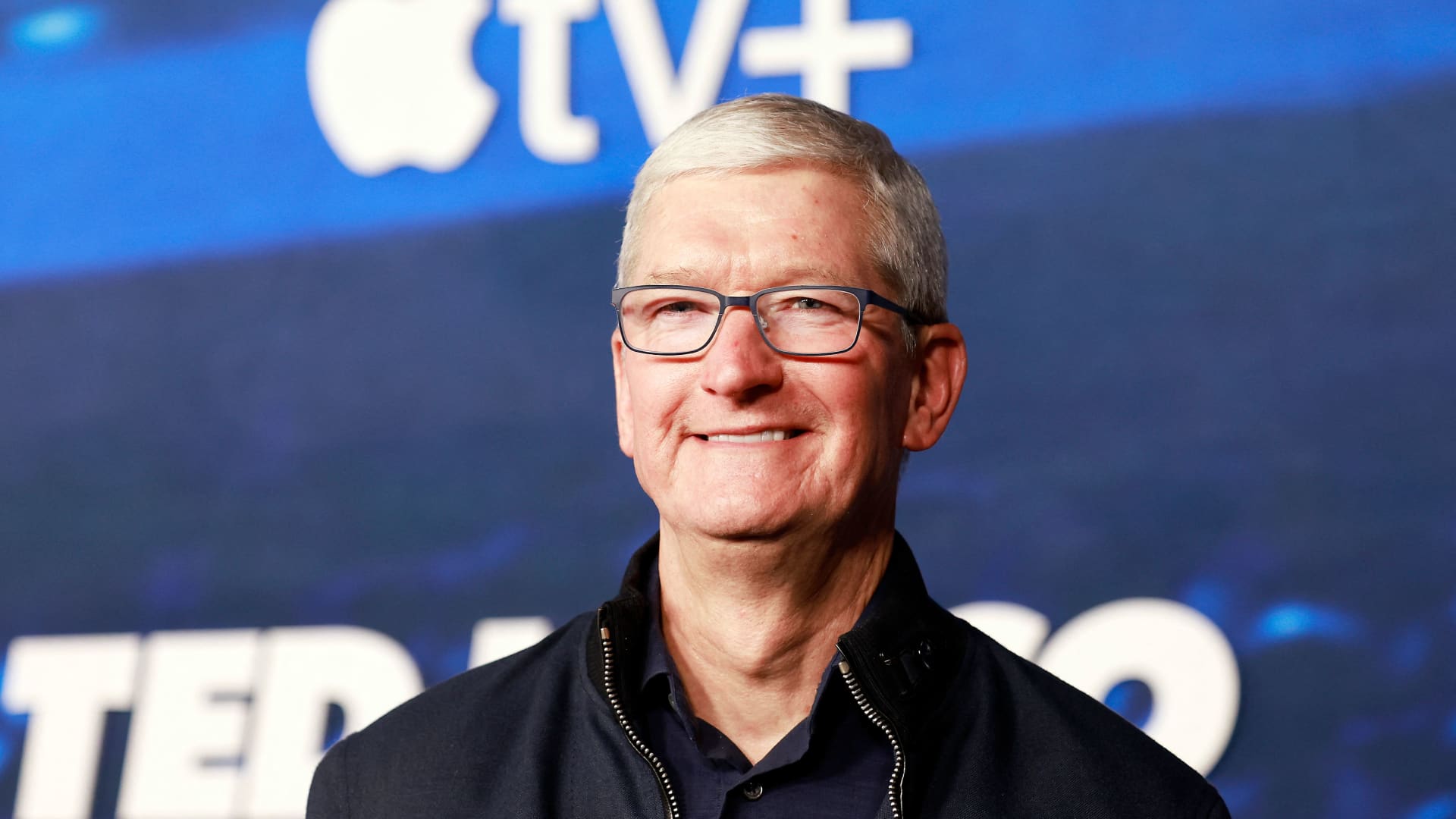Products You May Like
Some people shy away from criticism and negative feedback. Not Apple CEO Tim Cook.
When Cook took the helm of the tech giant in August 2011, he faced widespread skepticism that he could effectively fill Steve Jobs’ shoes, he recently told GQ. The criticism didn’t stop there — Cook has since faced backlash for his pay package, Apple’s return to work policy and his idea of innovation.
To an extent, it’s part of the job: When you run one of the world’s biggest companies, you’re bound to make decisions some people find unpopular. And much like when you have a boss whose feedback comes in prickly forms, Cook needed to find a way to deal with the criticisms, he said.
He summed up his approach in a single sentence: “I try very hard not to take things personal that I don’t think are meant to be personal.”
Of course, that’s easier said than done. Even when criticism is delivered kindly — and on the internet, it rarely is — it can threaten the crucial human psychological needs of safety and self-worth, bestselling author and social scientist Joseph Grenny wrote in a 2019 Harvard Business Review article.
Tackling criticism in a resilient way requires “detaching yourself from what is being said,” so you can “bypass” any feelings of inadequacy and defensiveness, Grenny wrote.
That’s exactly what Cook said he’s learned how to do. “Talking heads critiquing — this kind of stuff kind of goes through me,” he said. “It has to, or I wouldn’t be able to function.”
Since becoming Apple’s CEO, Cook has overseen the release of Apple products like Airpods and Apple Watches, and updated versions of existing products, like the first iPhones without home buttons. Each was initially met with with skepticism, he said.
“The [impact of] the watches has been profound, but you would never know that if you go back and read the press from the launch,” Cook said. “By the same token, think about the iPhone. When the iPhone came out, people said, ‘This isn’t going to work. It doesn’t have a physical keyboard. Everybody wants a physical keyboard.'”
Cook even faced criticism from Jobs himself, according to Walter Isaacson’s 2011 biography “Steve Jobs.” Jobs was concerned that his handpicked successor wasn’t enough of “a product person,” Isaacson wrote.
In response, Cook took a leaf from his ex-boss’ book, leaning into the way Jobs held every Apple department to the same standard of “innovation” — from product development to internal communications, and everything in between.
Today, Apple boasts a $2.67 trillion market capitalization, a positive indicator of Cook’s 12 years of company leadership so far. Cook himself has a net worth of $1.9 billion, according to Forbes — much of that due to Apple’s financial success.
“I don’t think anybody could be Steve. I think he was a once-in-a-hundred-years kind of individual, an original by any stretch of the imagination,” Cook told GQ. “And so what I had to do was to be the best version of myself.”
DON’T MISS: Want to be smarter and more successful with your money, work & life? Sign up for our new newsletter!
